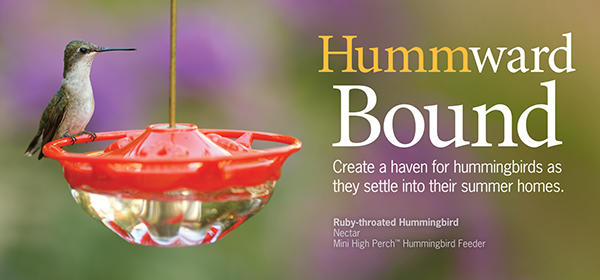Hummingbirds are worth the wait
Waiting for something often makes it more exciting.
This is especially true as you anticipate the first glimpse of a hummingbird each spring. The excitement of their arrival at your feeders is guaranteed to bring joy to your heart and a smile to your face.
So, be patient and rest assured that hummingbirds are on their way. Their arduous 2,000 mile journey from Central America will finally end in your own backyard! They typically arrive in Central Texas around St. Patrick’s Day.
2026 Hummingbird Spring Migration Map
Zoom / pan map for more detail, and click on icons for sighting info
Click on this icon  below to see a list of sightings for 2026
below to see a list of sightings for 2026
Be it a juvenile or adult hummingbird, watching them at the feeder is always a special treat. Watch as they fan their tail and dart at one another. Check for a hint of yellow pollen on their forehead from the flowers they have visited. Listen for their chittering or squeaking calls and the incessant hum of their wings. Observe their tongue moving in and out of their bill up to 12 times per second as they lap up the sweet nectar.
Hummingbirds do not feed by sucking up nectar with their bills. They feed by using their forked, open-grooved tongue to draw the nectar into their mouth with every lapping action.
A great way to see this amazing tongue in action is to use a Wild Birds Unlimited Hummingbird Feeder or a WBU Window Hummingbird Feeder. Due to these feeders’ clear plastic bases, you will actually be able to witness the rapid lapping action of your hummingbird visitors.
WBU® Hummingbird Feeders
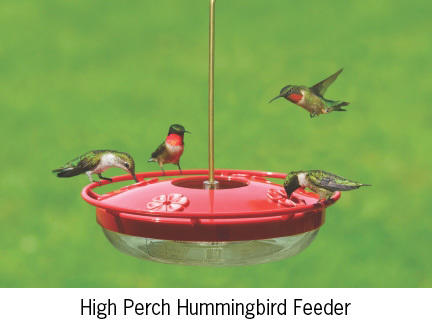
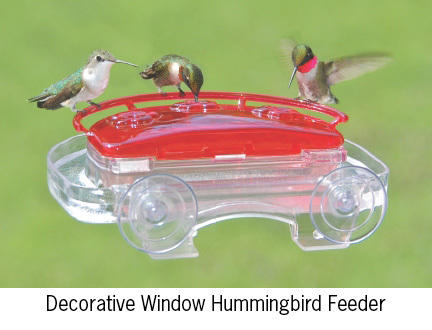
These specially designed feeders have built-in ant moats to keep bugs out and feeding ports that prevent rainwater from diluting the nectar solution. They’re easy to hang and easy to clean (top shelf dishwasher safe).
Nectar Defender/Nectar Fresh
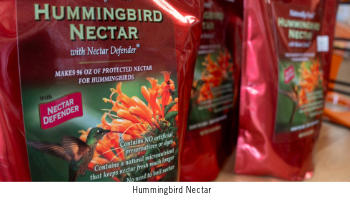
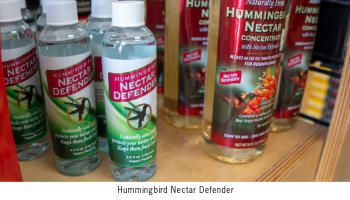
Protect your nectar for longer with these all natural products that protect the freshness of hummingbird nectar and stop spoilage.
Nectar Defender works using a micronutrient naturally consumed by hummingbirds in their diet of nectar and insects.
Hummingbird Swings
Swings serve as a resting perch for hummingbirds while not feeding, which provides a better view for bird watchers than trying to find them up in the trees. It’s an ideal resting place where they can survey they territory while conserving their energy.


